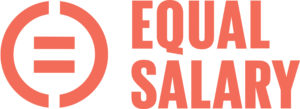Original article available on the website of the Federal Department of the Economy, Training and Research, of the Swiss Confederation.
Access it here.
According to the Federal Statistical Office (FSO), the overall gender pay gap in Switzerland narrowed by 2.5 percentage points between 2018 and 2022, bringing it down to 9.5%. During this time, a new equality law was enacted. This legislation mandates that companies with more than 100 employees conduct a pay equity analysis, undergo an audit, and share the results with their employees.
Despite these significant statistics and measures, pay gaps remain substantial in Switzerland. The disparities are more pronounced in higher-level positions. For instance, in 2022, women in high-responsibility roles earned CHF 9,565 gross, while men in equivalent positions earned CHF 11,212. Given this nearly 15% difference, every company, regardless of its size, needs to take action, asserts Lisa Rubli, co-director of Equal-Salary.
What do the latest figures from the FSO indicate to you?
Lisa Rubli: They are encouraging and show that we are heading in the right direction. However, nearly half the pay differences remain unexplained and are largely gender based. Furthermore, the figures highlight the existence of a glass ceiling. Women receive 62% of salaries below CHF 4,500, while men receive 75.4% of salaries above CHF 16,000.
How has your foundation been working to improve this situation since its creation in 2010?
Rubli: Our founder envisioned a pragmatic, positive, and practical tool to promote pay equality within companies. Today, Equal-Salary offers a certification based on both statistical and qualitative audits of organizations. This involves analyzing actual salaries as well as internal processes. We issued our first certification to a Swiss company in 2008 and the first certification for all international branches of a Swiss multinational ten years later. In 2020, the foundation aligned itself with the new equality law. As of this year, subject to a rigorous review process similar to that used in public procurement law, we also accept results obtained from Logib as the initial part of our certification. This tool, developed by the Confederation, allows employers to analyze pay equality within their companies for free. Additionally, former Federal Councillor Simonetta Sommaruga assumed the presidency of the foundation in 2024.
What can we conclude from the requirement for companies to analyze pay equality, which came into effect in 2020?
Rubli: Addressing pay disparities has gained significant importance: what was once an optional goal has now become a legal obligation. This change has led to a renewed interest in our certifications. However, some issues still need to be addressed. We would like this measure to be permanent (instead of ending in 2032) and for there to be more frequent inspections. Additionally, to thoroughly assess the impact of this measure in Switzerland, we are awaiting more precise and up-to-date statistics.
Companies holding an Equal-Salary certification are mainly large corporations like UBS, DHL, Richemont Group, and PwC. What prevents SMEs from adopting such certification?
Rubli: We have audited companies across various sectors, ranging from those with 116,000 employees to those with 62. The only requirement for our methodology to be effective is that organizations must have more than 50 employees. However, HR policies and processes are often more clearly defined in large companies than in SMEs. The lack of financial and time resources poses a significant challenge for SMEs. This is one reason we now incorporate the Logibtool. We aim to save time for companies that have already used it, allowing them to focus on the qualitative aspects of the certification rather than the statistical analysis.
What should an SME do to promote pay equality?
Rubli: Management must be committed to the importance of the issue so that it becomes ingrained in the company’s culture. Beyond this foundational step, it’s essential to review the salary structure and its implementation. Additionally, the entire employee lifecycle – including recruitment, training, and promotion – should be examined using specific indicators. For example, maintaining a record of the ratio of women to men who are promoted or have access to training can be very effective.
The measures taken ensure compliance with the law, but what other benefits can an SME gain by thoroughly implementing pay equality?
Rubli: Promoting pay equality and representation in leadership positions places people at the core of the company. Companies that embrace this see positive impacts on their work culture, innovation, and productivity. Additionally, demonstrating commitment through certification enhances talent attraction and serves as evidence of good governance. For companies operating in the European market with more than 100 employees, having a robust policy on pay equality also prepares them well for the new EU directive on pay equality, which is more stringent than Swiss regulations.



